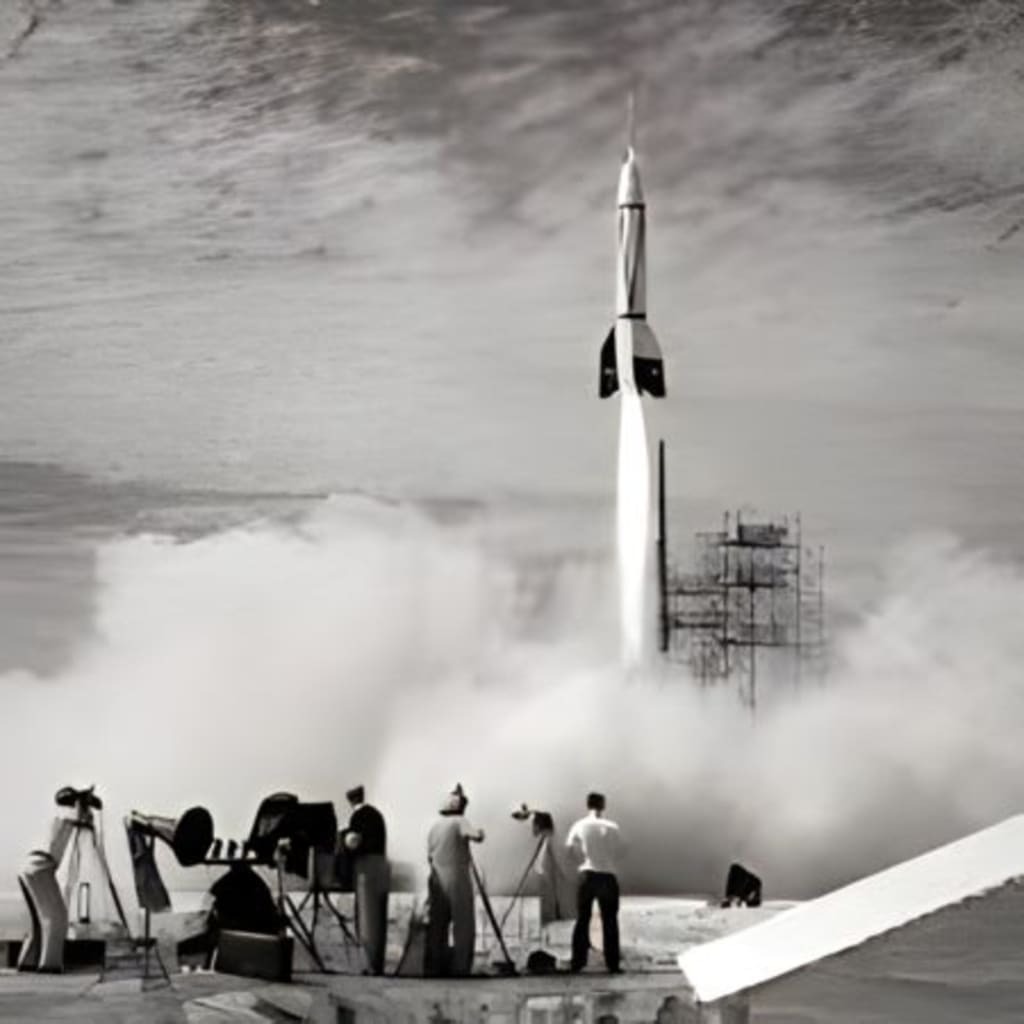The Cold War and the Space Race: The Battle for Supremacy Beyond Earth
Tenth important topic of USA history

Title: The Cold War and the Space Race: The Battle for Supremacy Beyond Earth
Introduction
The Cold War era, spanning from the late 1940s to the early 1990s, was marked by intense geopolitical tensions between the United States and the Soviet Union. This global standoff between two superpowers had far-reaching implications, both politically and technologically. At the heart of this rivalry was the Space Race, an epic contest that captured the world's attention and became a symbol of technological prowess and ideological superiority. In this article, we delve into the historical context, key milestones, and lasting impact of the Cold War-era Space Race, particularly for the United States.
Cold War and the Space Race
1. The Ideological Struggle: The Cold War was characterized by ideological differences between the capitalist United States and the communist Soviet Union. Both nations sought to showcase their system's superiority, and space exploration emerged as a critical battleground for this struggle.
2. Sputnik and the Start of the Space Race: On October 4, 1957, the Soviet Union launched Sputnik 1, the world's first artificial satellite. This remarkable achievement shook the United States, triggering fears of Soviet technological superiority and igniting the Space Race.
3. Apollo Program and Moon Landing: The United States responded with its Apollo program, an ambitious effort to put a man on the Moon. On July 20, 1969, the Apollo 11 mission achieved this historic feat, with Neil Armstrong and Buzz Aldrin becoming the first humans to set foot on the lunar surface. This remarkable accomplishment symbolized American technological and scientific prowess.
4. Technological Advancements: The Space Race pushed both nations to invest heavily in scientific research and technological advancements. The development of rocketry, satellite technology, and computer systems propelled innovation and had a lasting impact on various industries and fields of study.
5. Space Cooperation and Diplomacy: While a rivalry existed between the United States and the Soviet Union, the Space Race also had moments of collaboration and détente. The Apollo-Soyuz Test Project in 1975, for example, saw a joint US-Soviet space mission, marking a significant step towards cooperation in space exploration.
Impact and Legacy
1. Technological Innovation and Scientific Advancements: The Space Race led to remarkable technological advancements that revolutionized various industries. Research in space sciences, materials science, and communications technology yielded breakthroughs that continue to shape our lives today.
2. National Identity and Soft Power: The Space Race became a source of national pride for the United States, bolstering its image as a global superpower and a leader in science and technology. The accomplishments in space exploration projected American soft power and influenced perceptions of the country's capabilities.
3. Education and STEM Fields: The Space Race generated a surge of interest in science, technology, engineering, and mathematics (STEM) fields. It inspired generations of students to pursue careers in these disciplines and led to increased funding and support for STEM education.
4. Peaceful Competition and Diplomacy: The Space Race, despite its competitive nature, also served as a platform for diplomatic engagement and cooperation. Joint space missions and international collaborations in space exploration continue to promote peaceful relations and scientific discovery.
5. Space Exploration and Beyond: The legacy of the Space Race extends to current space exploration efforts. The achievements and lessons learned during this era laid the groundwork for ongoing endeavors, such as the International Space Station, Mars missions, and the aspiration to establish a sustainable human presence beyond Earth.
Conclusion
The Cold War-era Space Race between the United States and the Soviet Union was a defining chapter in human history. The competition for dominance in space exploration propelled remarkable technological advancements and left an indelible impact on science, technology, and society as a whole. Beyond its
scientific and technological legacy, the Space Race demonstrated the power of human ingenuity, the importance of international cooperation, and the boundless potential of exploring the unknown.
About the Creator
Enjoyed the story? Support the Creator.
Subscribe for free to receive all their stories in your feed. You could also pledge your support or give them a one-off tip, letting them know you appreciate their work.





Comments
There are no comments for this story
Be the first to respond and start the conversation.